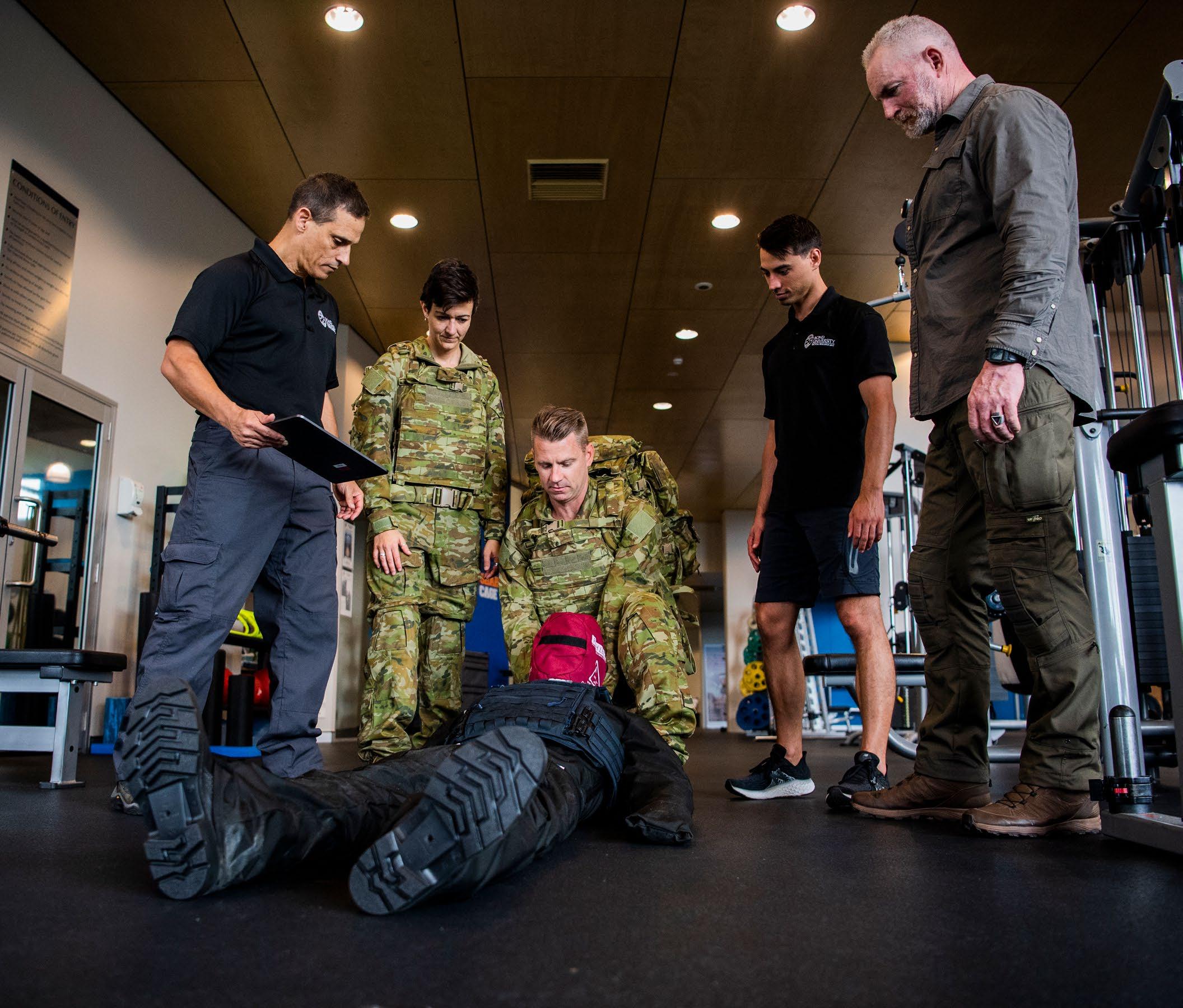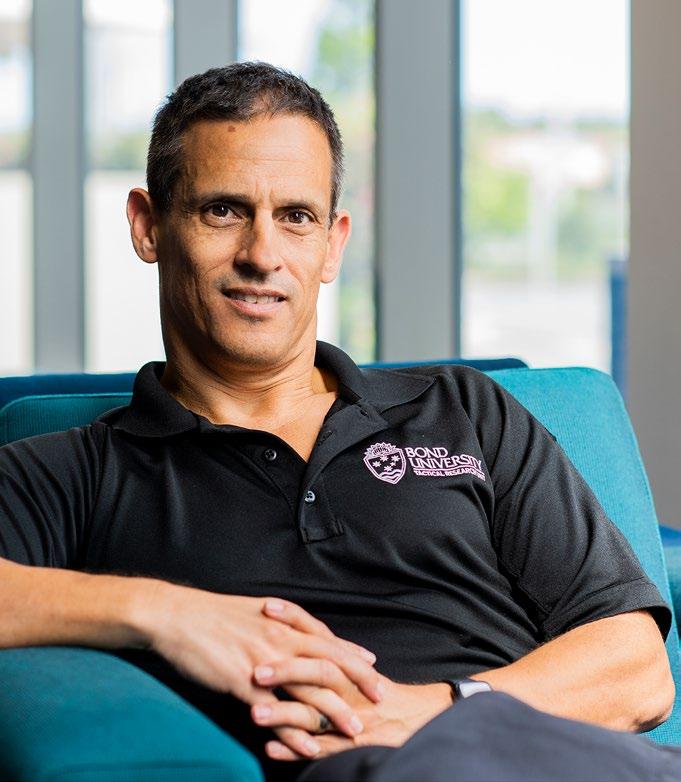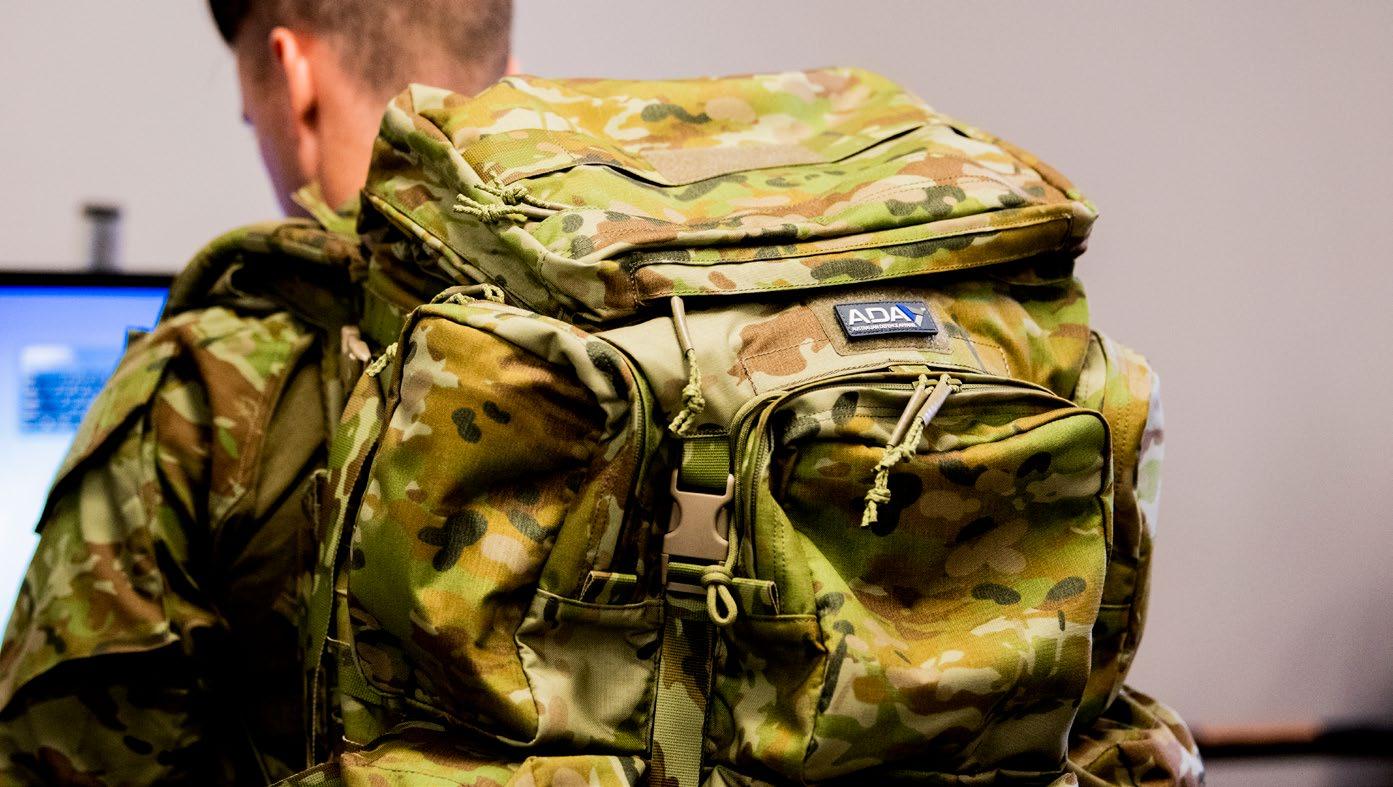
3 minute read
Dr Rob Orr
On the frontlines of research
WHEN IT COMES TO PROTECTING FIRST RESPONDERS, FORMER SOLDIER DR ROB ORR HAS BOOTS ON THE GROUND
by Andrew Bryan
Military, law enforcement and firefighting packs adorn Professor Rob Orr’s office at Bond University’s
Institute of Health & Sport. A whiteboard to his left is crammed with information on 16 PhD candidates he is supervising. In front of him another whiteboard displays 56 research papers he is authoring that are near completion. Dr Orr spent 23 years in the military and continues to serve first responders around the world with his research. His motto:
“The officer we save today could be saving our life tomorrow.” Dr Orr is the Director of the Tactical
Research Unit and an Associate Professor of
Physiotherapy and specialises in preventing injuries among those performing some of the most dangerous jobs on earth. “Whether it is military, fire and rescue or law enforcement, if we keep them on-the-job fit, able and capable, they are the ones that are going to save our lives and those of our family,” Dr Orr says. “That is our mindset. They are serving their country, putting their lives in harm’s way every day.
How can we make sure they are safe and can go home to their families?” Dr Orr’s research is global, spanning
Australia, the USA, the UK, Singapore, the
UAE, Germany and Serbia. “We work with countries all over the world which have totally different perspectives,” he says. “In Singapore they have conscription in their military. They have to take everybody, not just the fittest. How do they train them?
“In Abu Dhabi they have Ramadan, so they can’t eat or drink during certain periods of time which then creates a nutritional challenge when training officers.
“The more we know, the more holistic we can think about the challenges, the better effect we can have.”
Dr Orr was named the winner of the Vice Chancellor’s Research Excellence Award in 2020. He has an impressive research output including 142 peer-reviewed publications that have led to changes in government policy, industry product design and the establishment of new standards in fitness training and rehabilitation that now impact thousands of Australian tactical personnel each year.
“For me, the motivation comes from serving in the Australian Regular Army for 23 years - you want to give back,” he says. “Because the reality is, I was a high school dropout. I dropped out in Year 11. I now have a PhD. A lot of that comes from the lessons and character development I learned and experienced in the military. Before following my full-time service and engagement with other tactical organisations, I started to realise a lot of the problems the military face are also faced by law enforcement. They have very similar problems - constraints of training time, high levels of injury, requirement to carry load, need for mobility – and I started to see a lot of synergies. I then started working with fire and rescue who share similar challenges again. The reality is we are proud of the fact we are making a difference.”
But Dr Orr has bigger plans ahead.
“The majority of our research goes unfunded,” he says. “We do on occasion get some grants or some sponsorship and that allows us to increase capacity. If we could have sponsored PhD students, sponsored positions which allows someone to crunch information and data, we have 56 research articles that are almost finished that I just haven’t had time to finish. Any one of these could have a huge impact on our serving personnel. Blue sky is that we end up with a funded institution, we even have a name for it, the Tactical Institute of Education and Research or TIER, where we can devote all our efforts to helping law enforcement, firefighters, first responders and military personnel. If they have a problem they come to us and we help them find a solution. We want to assist them to make real-world change.”
Dr Rob Orr (left) watches a drag test to assess body armour and backpack fit, form and function.












